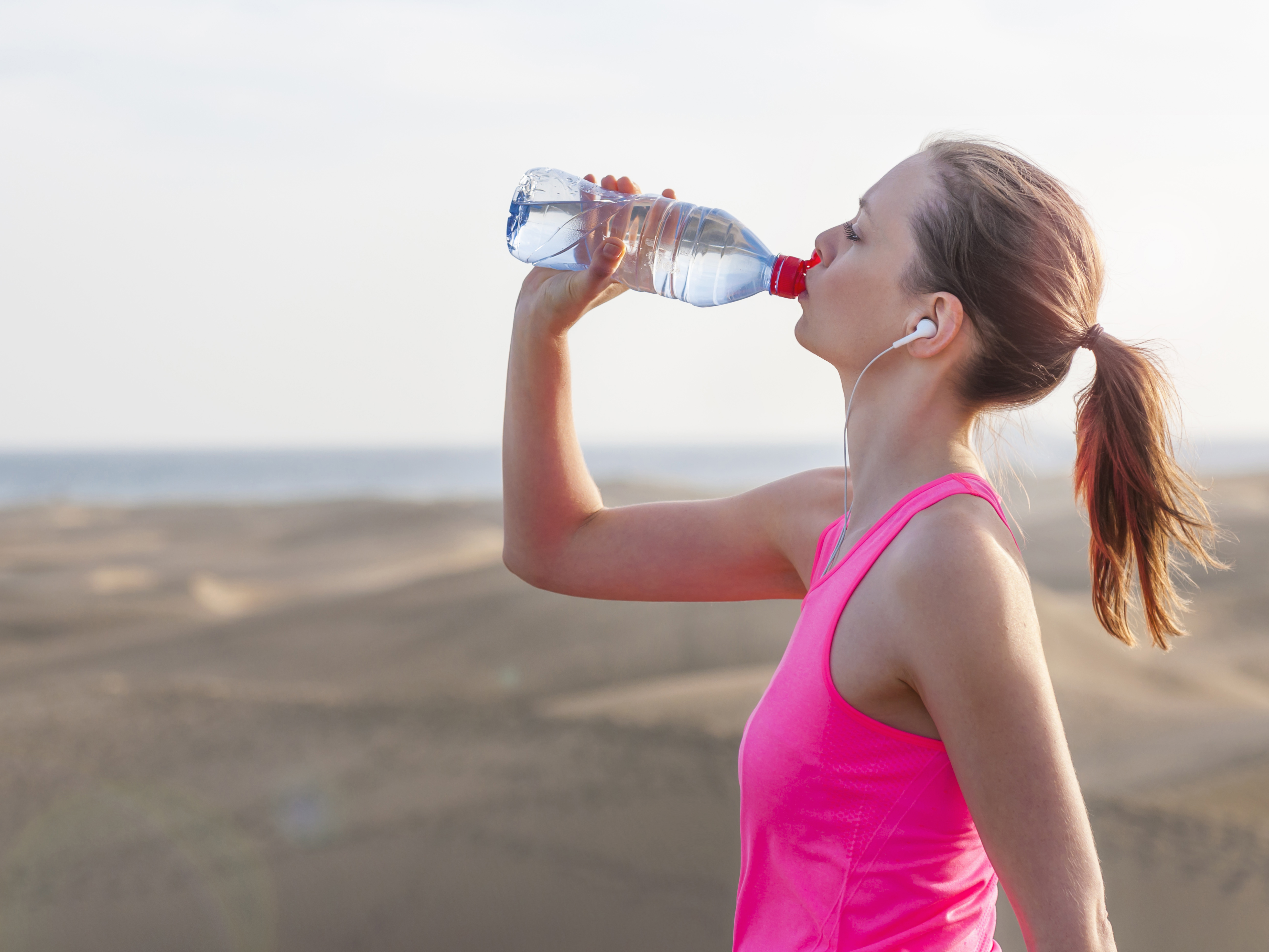Are you an aqua-holic?
Too much water can actually be bad for you


Too much water can actually be bad for you
We all know the drill, you have to drink enough water to stay hydrated and most importantly, ALIVE. At least 55% of our body is made up of water, so each day we have to consumer a certain amount of water to keep those levels up and survive. Of course, this varies according to age and gender, but as a general rule of thumb males should be drinking 3 litres a day and women should be drinking around 2.2 litres a day.
Why? Because water is one of the major components that helps your system function daily.
According to H.H. Mitchell, Journal of Biological Chemistry 158, the brain and heart are composed of 73% water, the lungs are about 83% water, the skin contains 64% water, muscles and kidneys are 79%, and even the bones are watery, containing 31% of H2O.
But, just as there's a minimum level of water you need to consume each day, there's also a limit and going past it can cause serious harm to your body. In fact, there's even an amount of water that could potentially kill you.
Drinking more water than the kidneys can get rid of in your urine can cause your body to retain it, throwing off the balance between water and sodium in your blood, which causes a condition known as hyponatremia. The worst part is, you may not immediately recognise the symptoms of overhydration in its early phases, which can include headaches, nausea, vomiting and disorientation or confusion and in serious cases can include muscles spasm, seizures and unconsciousness.
Thankfully, the treatments are pretty straight forward, depending on the severity of your symptoms, and can be as simple as cutting back on your fluid and salt intake for a while, adding diuretics to increase how much urine is produced and taking medication to reduce symptoms.
Celebrity news, beauty, fashion advice, and fascinating features, delivered straight to your inbox!
If you want to avoid getting into a situation like this, there's a few guidelines you can following:
1. Avoid drinking more than one litre per hour of fluid.
2. If you're doing something athletic, drink or eat something that contains electrolytes, sodium and potassium as all of those are lost in sweat.
3. If you have excessive thirst, contact your doctor because it could indicate a medical problem.
4. Hydrate yourself with fruit and vegetables that have a lot of water content too, not just H2O.
And remember, if you suffer any unusual symptoms, always consult your doctor.
